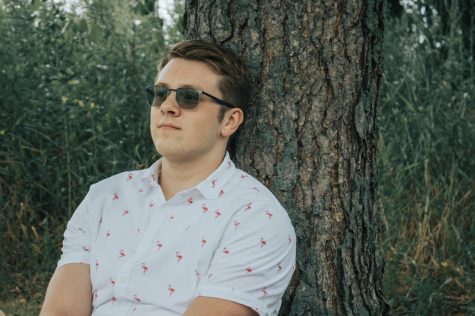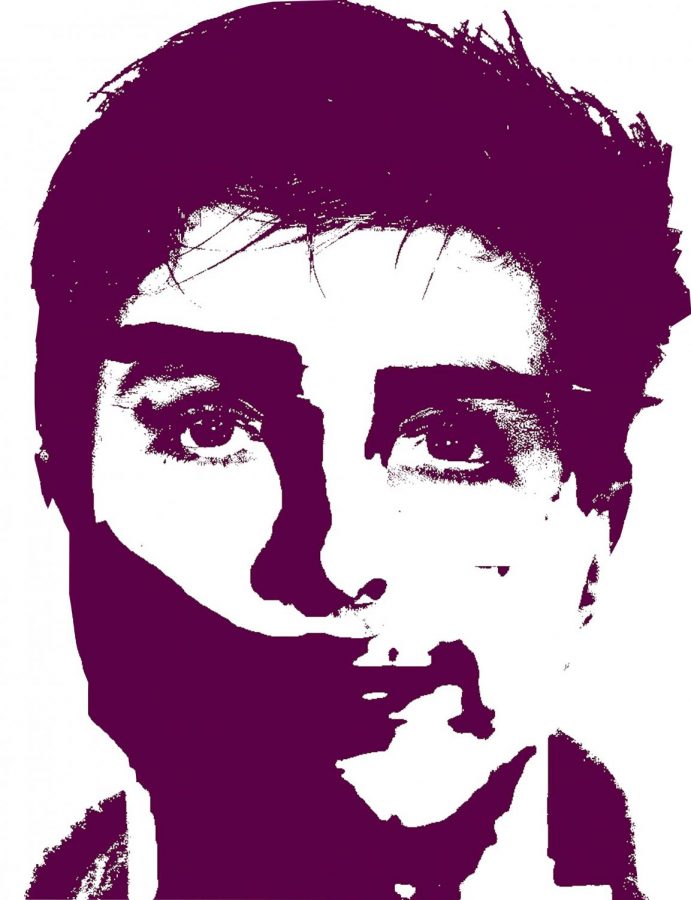The sun shone through the four-paned window in the bedroom of Terry Phillips*, causing them to stir from their slumber. They began their day like many other high school students do — waking up, eating breakfast and getting ready for the school day — but Phillips’ day began differently. They began by looking into the mirror and gathering the mental energy to pretend to be someone they aren’t.
Terry Phillips is bisexual and can’t come out of the closet.
They can’t come out in a city where being part of the LGBTQ+ community is widely accepted.. They can’t come out in a school where coming out is permitted, where they have faith that Community High School’s (CHS) Queer Straight Alliance (QSA) group would be able to support them. They can’t come out in a community where everyone would support them if they were to come out, when they know they would have the backing from everyone around them. Terry Phillips can’t come out because they’re afraid of what could happen to their daily life.
“Every day I wonder if today is the day to come out,” Phillips said. “But then I think of all the things happening in the world, things happening in our own communities, and I decided not to. So, I look myself in the mirror and I think about how I’m going to act that day. I choose my outfits very carefully, I think about everything I might need to say during the day, all in the hopes that people won’t get the hint that I’m not straight.”
According to a study conducted by the Human Rights Campaign, Phillips is one of the 42 percent of LGBTQ+ youth that say that they’re afraid of what coming out may mean. For Phillips, coming out would mean that they would be subject to lawmakers around the country who have passed “religious exemption” laws, which are a thinly-veiled assault against LGBTQ+ people; and while there has been significant progress in areas such as marriage, there is no federal law prohibiting discrimination of employment, housing and access to services.
“I play sports at Huron, and every day I enter the locker room to hear jokes and comments all at the expense of LGBT people,” Phillips said. “If it’s happening here in Ann Arbor, it’s happening all over the country. For example, when you look at the Obama presidency and all the work he did for LGBT people, compared to the Trump administration now, it’s scary.”
President Obama made several acts to integrate LGBTQ+ people more into society by signing in a variety of supportive acts. These acts included ending the Legal Defense on the Defense of Marriage Act, repealing the military’s Don’t Ask Don’t Tell policy and protecting LGBTQ+ Americans against discrimination.
Thus far, President Trump’s campaign has attempted to ban transgender people from serving in the military several times, the LGBTQ+ community has been erased from the National Survey of Older Americans, a budget was proposed that would have cut funding to HIV/AIDS research and guidance on protecting transgender youth in schools was rescinded.
“I think that for acceptance to be made in our society, education is the most vital thing to take that step,” said Brooke Rafo, a QSA member at Community High School. “When I was growing up, I didn’t think there was a difference between being straight and being LGBT, so I feel that if more people raise their children as if there is nothing odd about being LGBT, it would be a totally different story.”
In the majority of schools across the country, the only location where LGBTQ+ issues are taught is in health classrooms. Of these classes, there are four main approaches in what is taught: the ignoring approach, which ignores non-heterosexual behaviors completely; the demonizing approach, a method which directly implies that homosexual behavior is wrong; the stigmatizing approach, an approach which only mentions LGBTQ+ behaviors when it comes to risk factors; and a truly inclusive approach, which includes and infuses LGBTQ+ health and issues throughout the curriculum. While many health teachers may try to incorporate LGBTQ+ issues into their classroom, states such as Arizona, Oklahoma and South Carolina prohibit teachers from talking about LGBTQ+ issues entirely.
“I think that Community does a really nice job with the way it handles LGBT issues in classes,” Phillips said. “I took health with Robbie, and I firmly believe that she taught both LGBT health and issues as well as she could have into her classes. I’ve also taken Gender Studies with Chloe and obviously that class talks all about LGBT issues and it goes really in depth with how to change society to better fit. Community is a hidden gem in that way. I have friends in Indiana who have learned some things about LGBT health and issues, but then I start talking to them about what they’ve learned in school and it really doesn’t compare.”
“In my opinion, Community’s staff does a really nice job with the way that it treats LGBT issues,” said Chloe Root, CHS’s Gender Studies teacher as well as QSA’s advisor. “The reason that Community allows for this to happen is that it’s a smaller school, which allows the staff and students to be more willing to learn about LGBT issues because they’re more likely to know someone affected by those issues.”
While Community’s acceptance of LGBTQ+ people and issues is not lost on Phillips, they also realize that to come out the views on LGBTQ+ people in politics needs to change. The chance that they could suffer a pay dock, be refused to join military services, or suffer because of their sexual orientation; until these issues can change, Phillips will choose not to come out.
“I really love Community and everything it does to work on accepting LGBT people,” Phillips said. “While I would love to come out of the closet until equality is achieved for both straight and LGBT people, I don’t think it would be wise for me to come out until then. At the same time, when rights are gained I will be one of the first people to announce my sexuality.”
* Name changed to protect anonymity.


